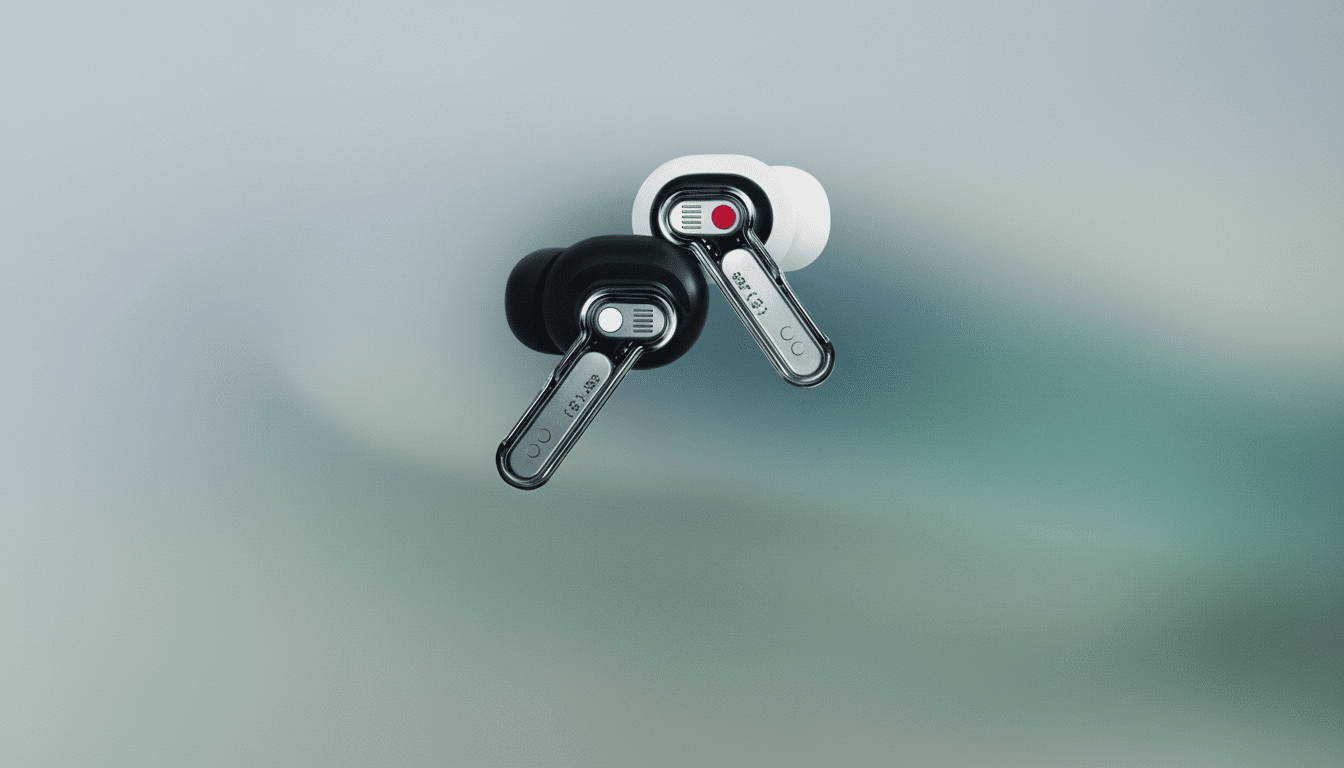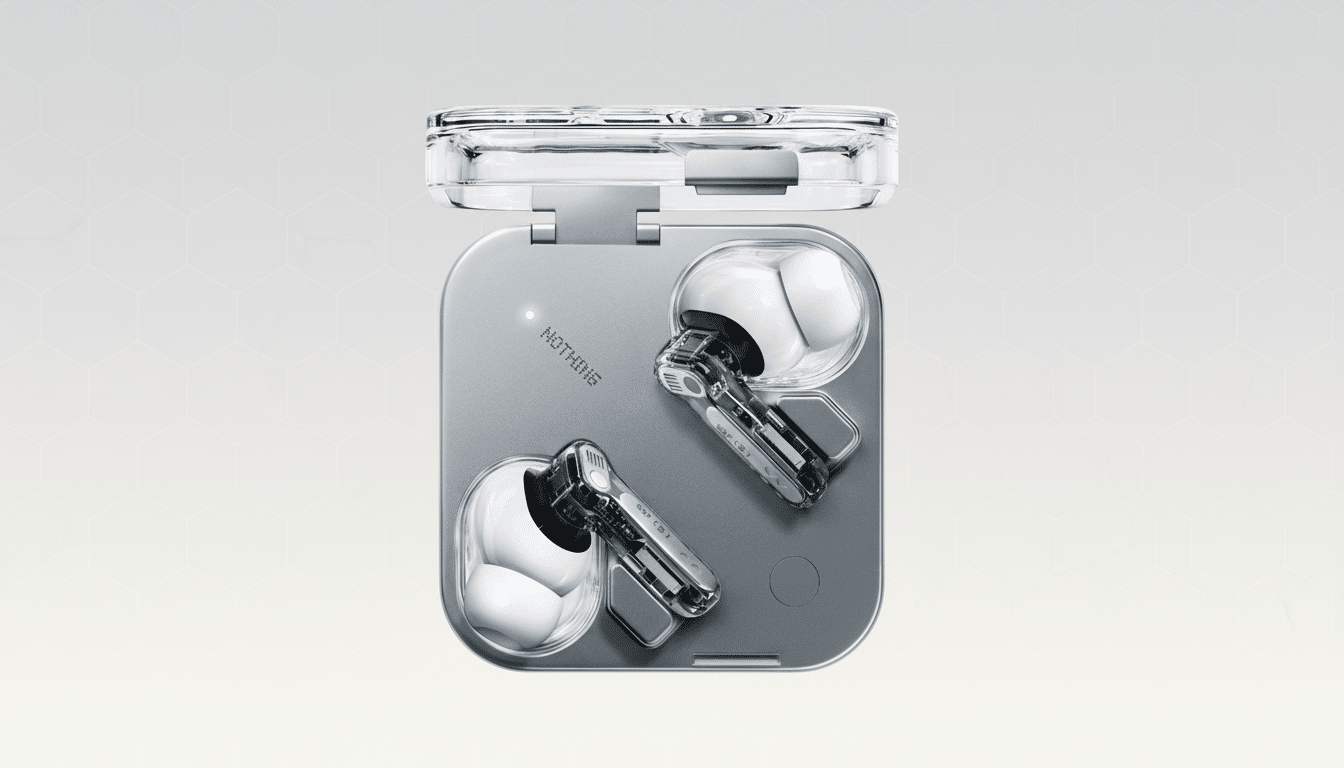Nothing’s new Ear 3 earbuds have one genuinely fresh idea: the charging case functions as a microphone. It’s a simple, on-brand twist that solves an actual problem — making calls in noisy places — and it’s a feature I wish my own AirPods Pro had. The kicker? They manage to undercut Apple on price and still land premium specs.
How Nothing Ear 3’s charging case doubles as a microphone
Nothing calls it the Super Mic: a dual-microphone array housed in the Ear 3’s transparent cover that can take over voice capture for calls and recordings. Hold the case near your mouth on a blustery sidewalk or a rattling commuter train, and the system, which uses noise filtering to prioritize your voice over background chaos, zeroes in. It’s a clear quality-of-life improvement for commuters, or anyone else who spends half their day on calls.

The case mic also works for fast voice notes — helpful when paired with Nothing’s Essential Space, an AI-powered hub on supported Nothing phones that categorizes ideas and transcribes memos. Even without that companion software, the case mic can act as your go-to source for clearer calls or recordings when the buds’ on-ear mics are battling wind and distance.
There’s a technical audio-engineering reason this is smart. Mics that are near a sound capture more of the desired signal compared to background noise. Slide the mic from your ear to your mouth — reducing the distance — and the signal-to-noise ratio improves by a few dB due to the inverse-square law. The result: less hiss, less wind thump, and more of your actual voice.
Why Apple should adopt this clever case microphone idea
There’s a lot AirPods Pro are excellent at: seamless pairing, Adaptive Transparency, and Precision Finding through the UWB-enabled case, to name a few — but one thing that isn’t great about the case is capturing your voice. When gusts begin howling, the buds’ microphones and tiny voice accelerometers can take you only so far. An on-case mic, used handheld or on a tabletop, would greatly increase call clarity without altering how you wear the buds.
It has no shortage of use cases: resting the case on a coffee shop table for a video call, gripping it like a mini dictation mic for an interview, snapping it on a lanyard as an improvised lapel mic. And yet, call quality remains a top purchase driver for earbuds in surveys like Qualcomm’s State of Sound, while independent testing labs often identify wind as an area that many models struggle with, which is exactly what a case mic directly addresses.
Audio, codecs, and battery life enhancements explained
The Ear 3 are more than a party trick. A bigger 12mm dynamic driver looks to provide both better deep bass and greater headroom, while support for Sony’s LDAC codec allows the buds to stream higher-bitrate wireless audio on compatible Android devices from Google and Samsung. (To be clear, iPhone users will revert to AAC, an excellent performer by Bluetooth standards, but it won’t reach the heady heights of LDAC’s ceiling.)
Battery life gets a nice bump. Nothing quotes up to 10 hours of continuous listening on a charge, which, if it holds true in real-world use, would comfortably outlast most flagship earbuds. The buds boast an IP54 rating to protect them against dust and splashes (sweaty workouts, light rain), aligning with many premium sets’ general durability levels now.

For calls, each earbud is equipped with three directional microphones and uses bone-conduction sensing and AI noise reduction to isolate your voice. Plus, with the case’s Super Mic option, you’re effectively getting two separate voice-capture setups to suit whatever environment you’re in.
Price and platform trade-offs between Ear 3 and AirPods Pro
The Ear 3 are priced far below the AirPods Pro’s list price, at $179. Street prices vary, but the headline never will: Nothing is providing a headlining feature Apple isn’t — for less. If you’re living on Android, you also get LDAC support and the added bonus of a case mic for calls and notes.
Apple is still the clear winner when it comes to the frictionless technology ecosystem story. AirPods Pro are praised for fast pairing, intelligent device switching, Personalized Spatial Audio, and deeper integration with Siri and Find My. By contrast, Ear 3 lean toward platform-agnostic practicality: a stronger stated battery life, a flexible voice-capture system, and that case-mic trick, which genuinely alters how you take calls when out and about.
The bigger market picture for smarter earbud cases
Increasingly, the most exciting true wireless innovation is happening in the case itself: smarter chips, better antennas, even microphones. The premium segment is growing, but it’s harder to differentiate as the criteria have become ANC and long battery life, according to Counterpoint Research and IDC. A case that makes voice calls more meaningful is a new spin in an already crowded field.
Not many earbuds attempt off-bud voice capture, putting Nothing in the spotlight for that. And it exerts a mild nudge on market leaders to reconsider what is possible with the case beyond charging and locating your buds. If the Ear 3’s Super Mic delivers as promised once it’s out in the real world, there will probably be imitators.
Bottom line: the Ear 3’s case microphone is exactly the sort of thoughtful, everyday feature that makes you question what “premium” should mean. If you spend much of your day on calls — or just prefer having fewer “Sorry, can you repeat that?” moments — the cheaper buds might be the savvier purchase.

